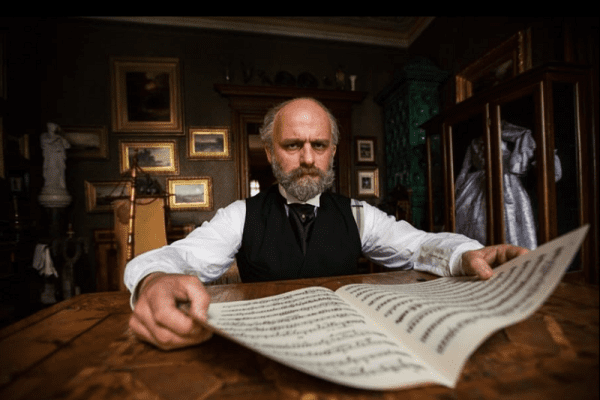Last night we watched a rare film, The Pagan Queen (2009), a historic romance with fantasy elements set in the dark ages, 700 AD. Rare perhaps, because most films that deal with the Middle Ages are known for Tolkien lore and magic whereas this film deals more with Paganism in the early Medieval period and a realistic look at the Slavic queen and Bohemian legend, Libuše. The film has a slow pace and the most of the actors are Eastern Europeans whose first language is not English, so go into watching with that in mind.

While the Middle Ages are usually portrayed in films of epic proportions, The Pagan Queen is not one of those historical movies. We don’t see hundreds of extras and forget about the designer rich costumes or video game worthy computer-generated battles. This movie shows the time period how it was, and does not sugar coat or romanticise it at all. That is not the point of this story.
Libuše (historically in English, Lubossa) was the legendary ancestor of the Přemyslid dynasty and the Czech people as a whole.
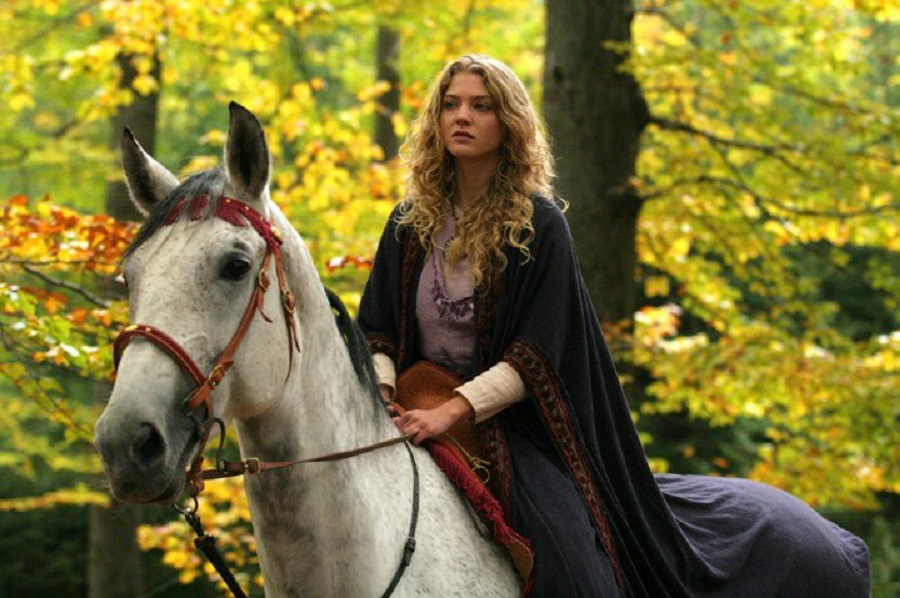
Even though The Pagan Queen looks like a simple film from the outside, it is filled with magic and symbolism which caused quite a stir when the film was first released in the Czech Republic.
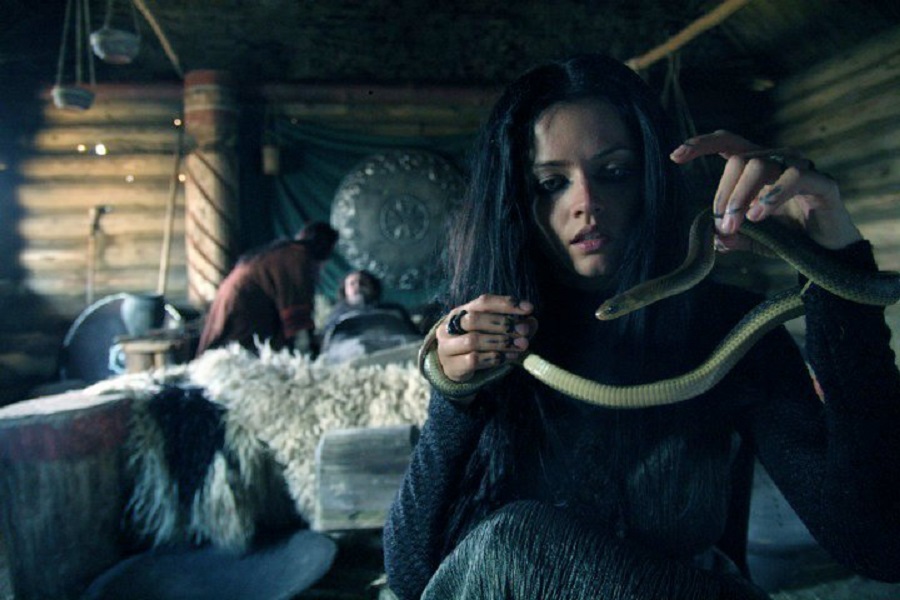
She was known as the wisest and the one who became queen after their father died. (Her father was the equally mythical Czech ruler and first judge of the Czech people, Krok.) He was described by Cosmas as “a man known for his age, absolutely perfect, rich and worldly in his judgements, and sophisticated. This wonderful man had no male heirs, but rather three daughters, whom nature had granted the treasures of wisdom”.
Based on legend, she was one of three sisters.
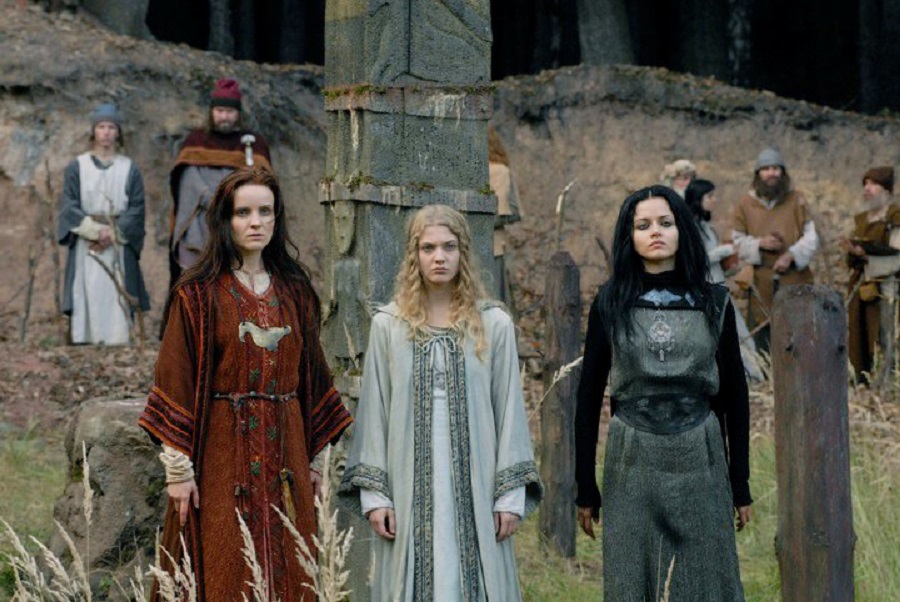
Kazi is the eldest. She is a healer and a student of nature. Teta is the middle sister. She is Krok’s High Priestess. She burns marjoram, thyme, juniper and crocus by his bedside to ward off evil spirits. Libuše is the apple of Krok’s eye. The youngest of the three sisters, she is the most beautiful of all. She has a wonderful imagination, wisdom beyond her years and is a visionary and a seer with the gift of prophecy. She has the special potential to do great things in the world.
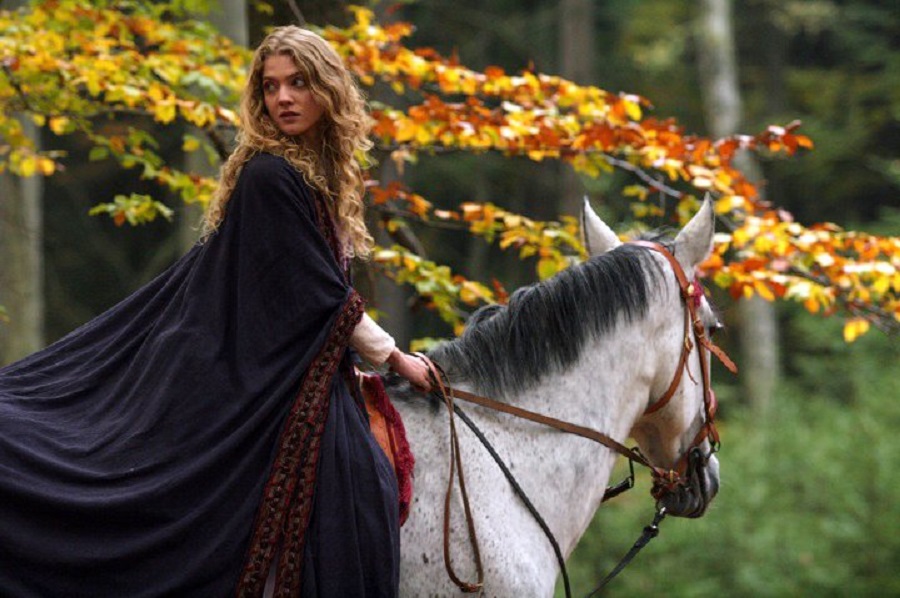
We see all of the women in this film as strong women in their own rights. They are healers, warriors, princesses and queens who are in control of their destinies and their bodies and the film makes no apologies for that. Remember, this is long before Christianity.
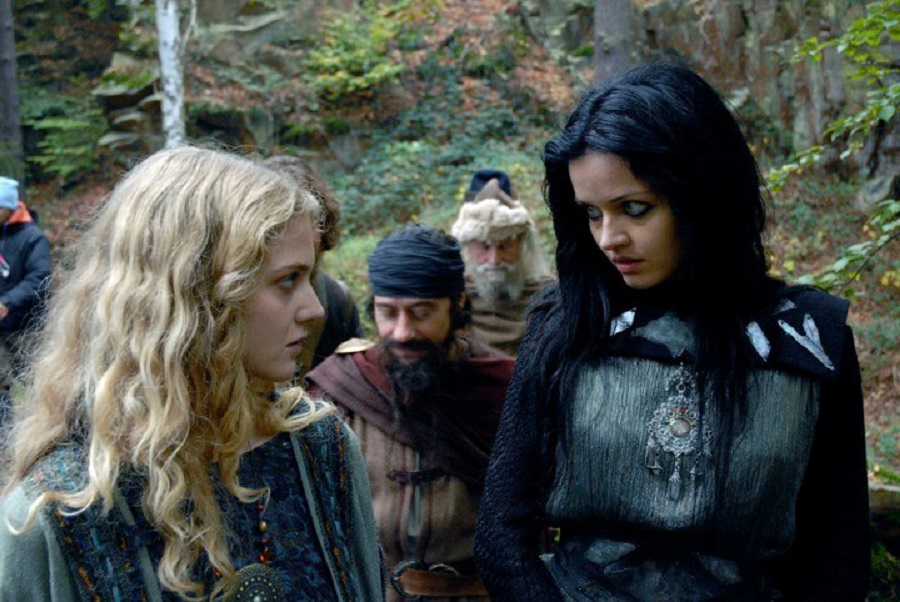
What we view in this film is matriarchy in the absolutely pagan sense and how it begins to transition to the modern patriarchal society and beliefs we’ve carried since.
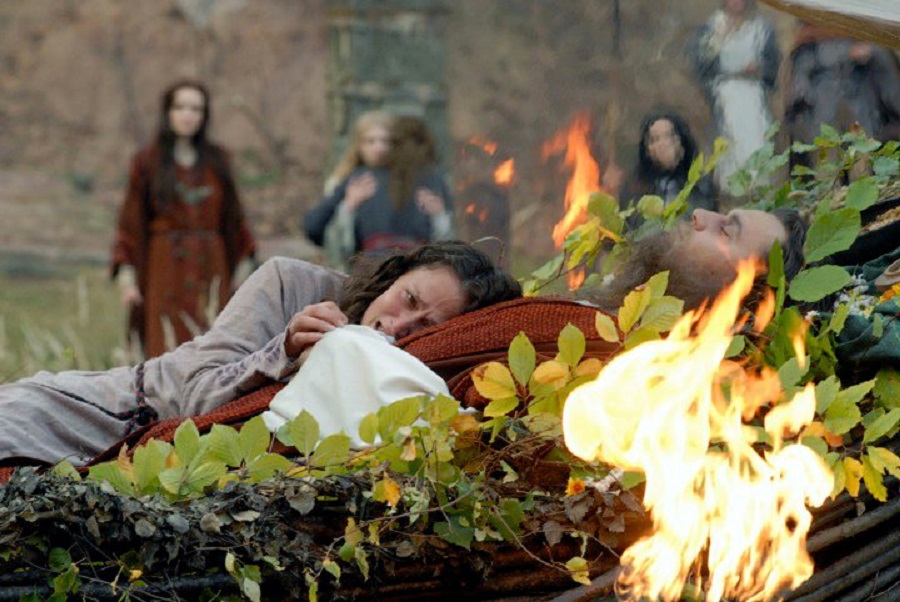
In the film we understand that in a matriarchal society, the general philosophy of life is truly carpe diem (seize the day), and they live in the moment with non-religious focus on their life on earth.
When the peaceful community of farmers is under attack by raiders and split into different parties of power hungry landowners, Libuše is forced into marriage by her own people. She marries a common ploughman, Přemysl.
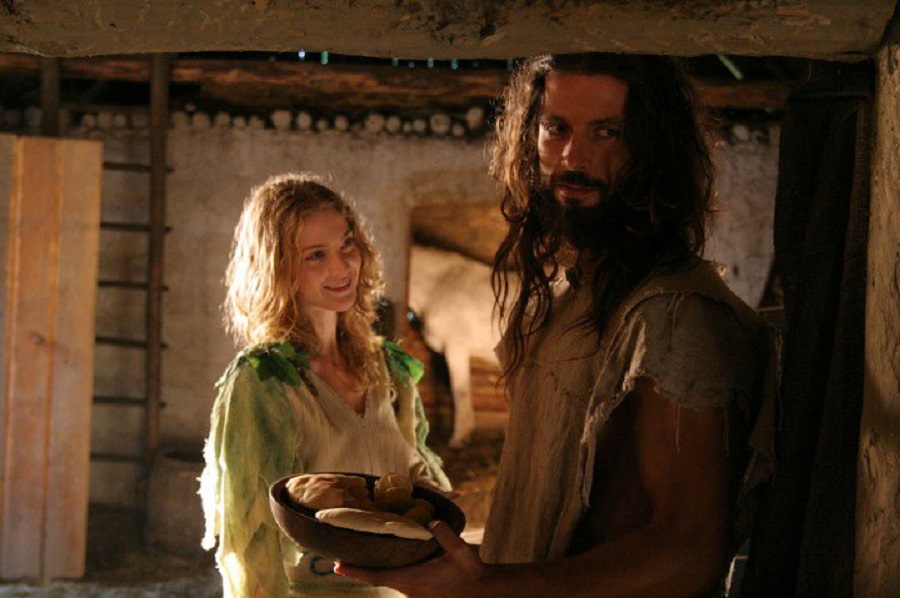
Soon Přemysl completely takes over the new kingdom.
He rules with an iron fist and attempts to enslave the formerly free farmers.
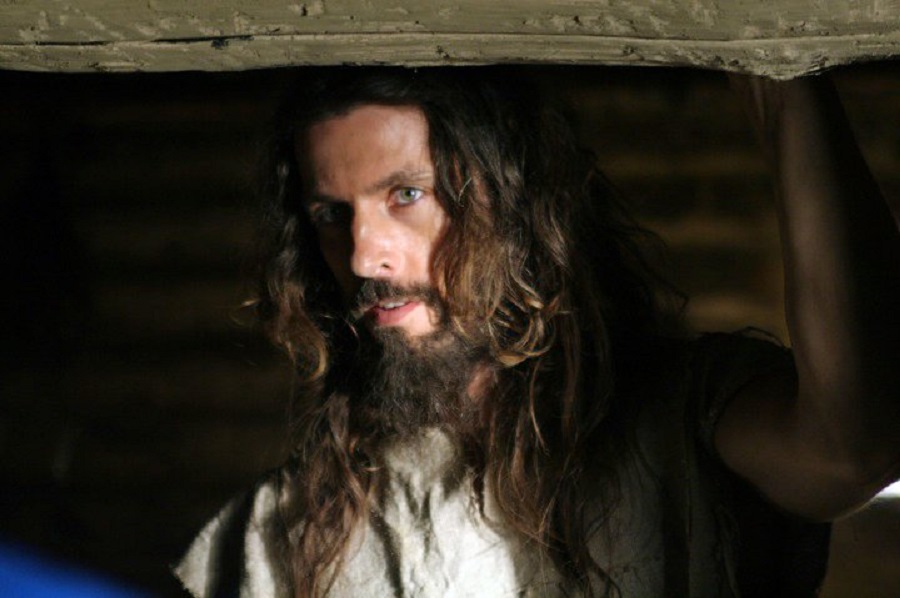
Together, they found the Přemyslid Dynasty.
But all the while, Libuše cares about her people and tries to improve life.
She lives by example, enjoying her own life and her own sensuality.
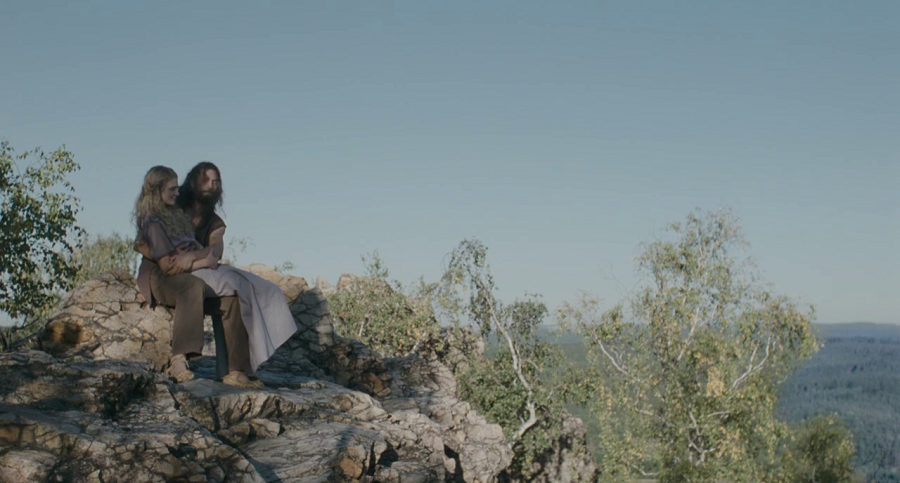
It’s clear that she believes in personal freedom versus serfdom and a hierarchic structure of society suggested by the tribe leaders and later adapted by Přemysl.
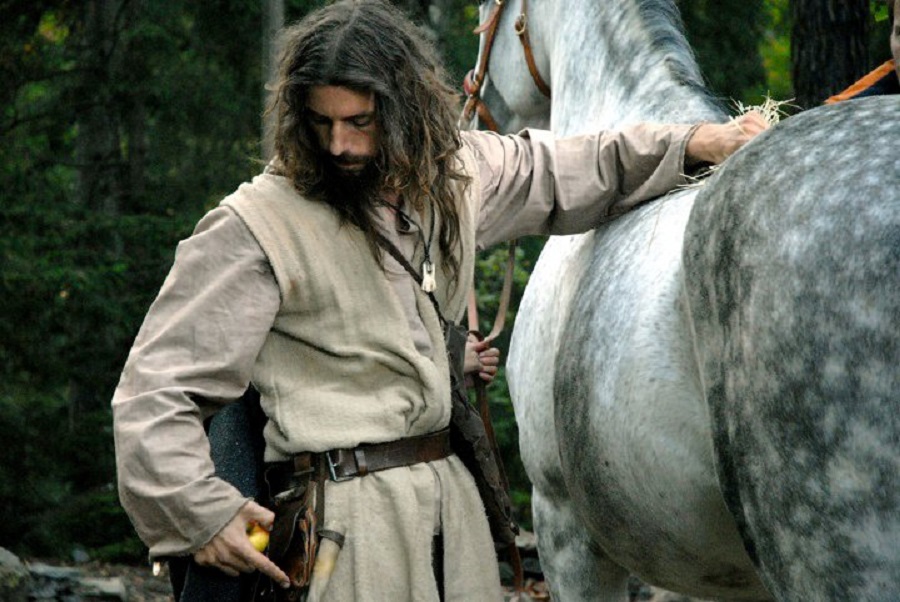
In reality, she is perhaps most known for her prophesies about, and the founding of, the city of Prague in the 8th century. Libuše was gifted with supernatural powers. She was a wise visionary and a seer. This is most likely why, after Krok’s death she was the one chosen to rule. She rules well along with her sisters and an army of women led by her friend, the Amazon, Vlasta (who is secretly in love with her).
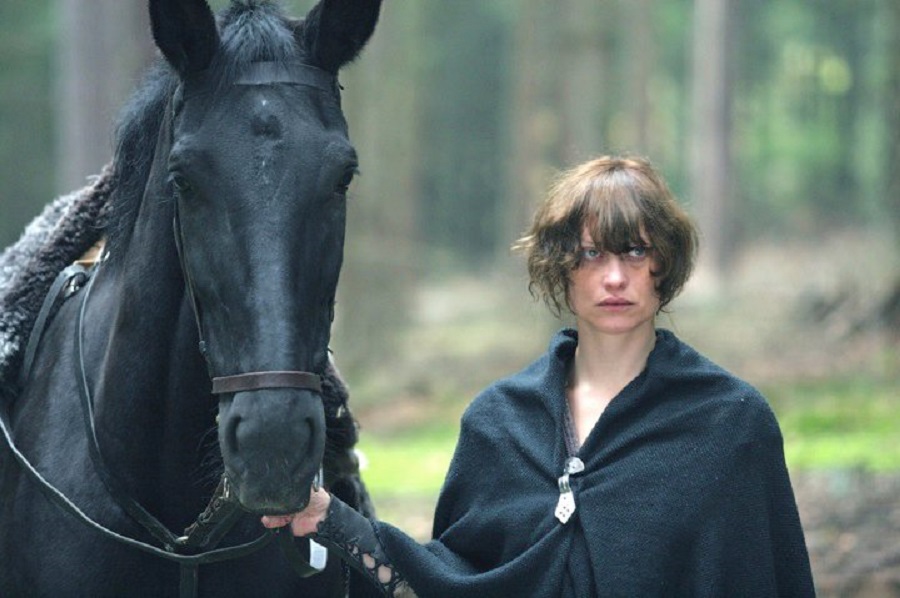
Vlasta refuses to follow the new leader and with her maiden army, she declares war on the men of Bohemia.
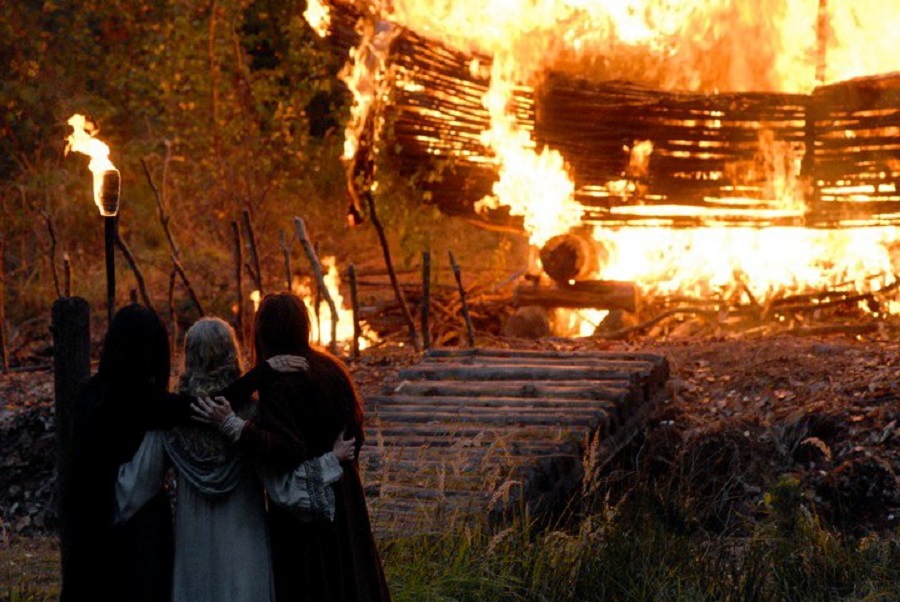
The film is filled with the sort of magic that is a natural part of life. We see numerous rituals, the honoring of family and ancestors, of the land, of the gods, and their people.
The film recreates the pagan culture and rituals of the dark ages in a realistic fashion and was shot on location in the Czech Republic in reconstructed Slavic settlements and ancient forests.
In this fantasy drama, inspired by The Crown of Vysehrad, we are taken on a journey of turbulent times of cultural change.
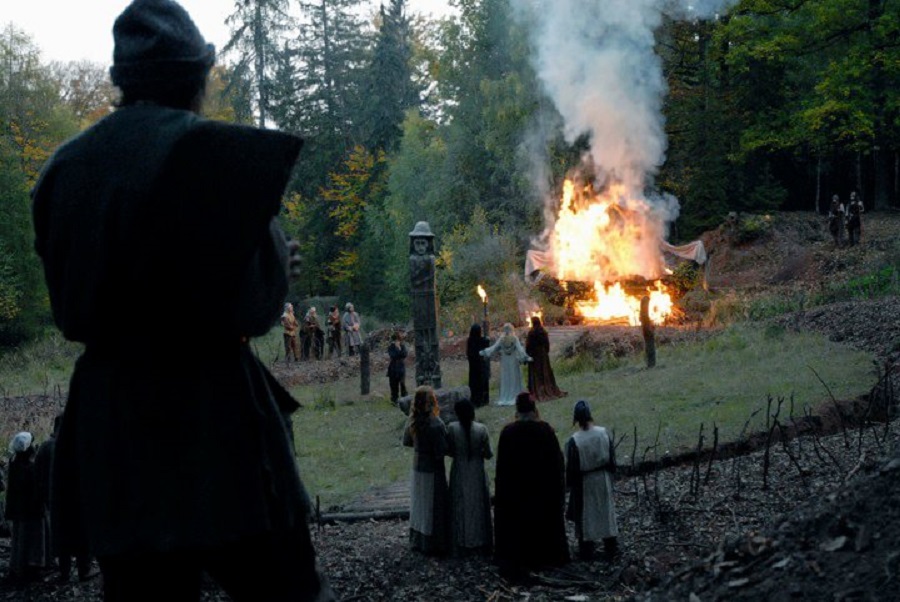
We see Libuše envision the modern city of Prague and experience her rule over her tribes with a gentle wisdom. Remember, this is the Dark Ages, 700 A.D., the 8th Century, during the magical times before Christianity and scripture, which are remembered only in myths and legends.
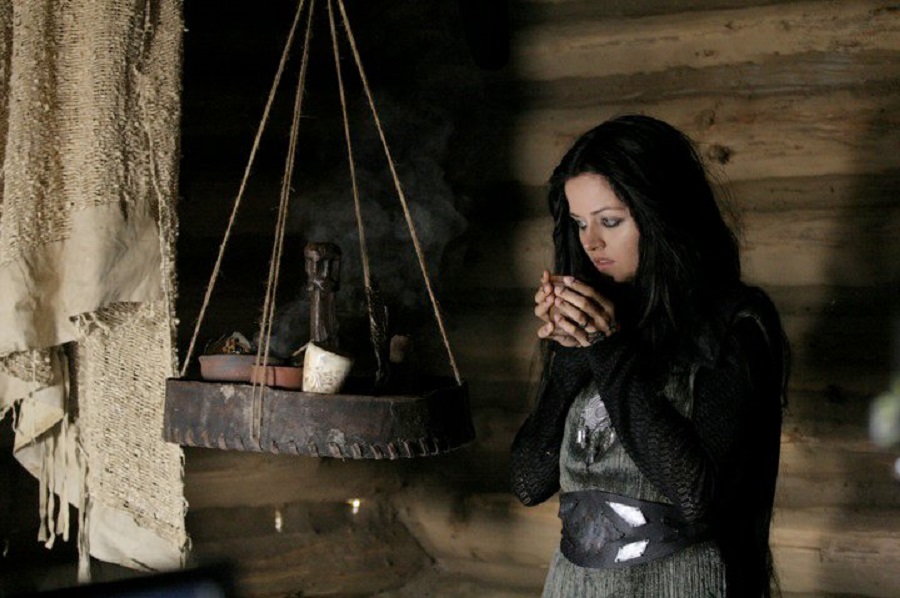
I was so pleased that Constantin Werner (director) did his research. He spent time studying the folklore, mythology, and esotericism as well as the history of this Czech legend.
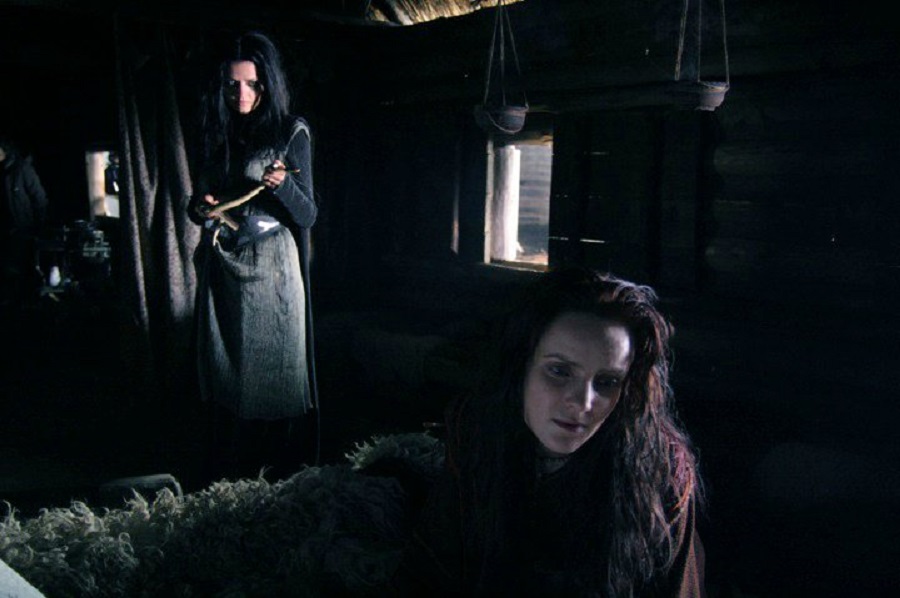
When watching, make sure to allow enough time to have a second viewing of the movie with the director’s commentary turned on Fascinating wisdom and tidbits in there!
Meanwhile, the critical reception in the Czech Republic was very negative. Many Czech critics like Frantisek Fuka attacked every aspect of the film, some even attacked the hair color of the lead actress because they didn’t feel that the film represented their traditional view of the story and characters.
The film was also rejected by the Karlovy Vary International Film Festival.
We loved that we got to see how her visions of building Prague came to be and for that alone, it was worth the watch.
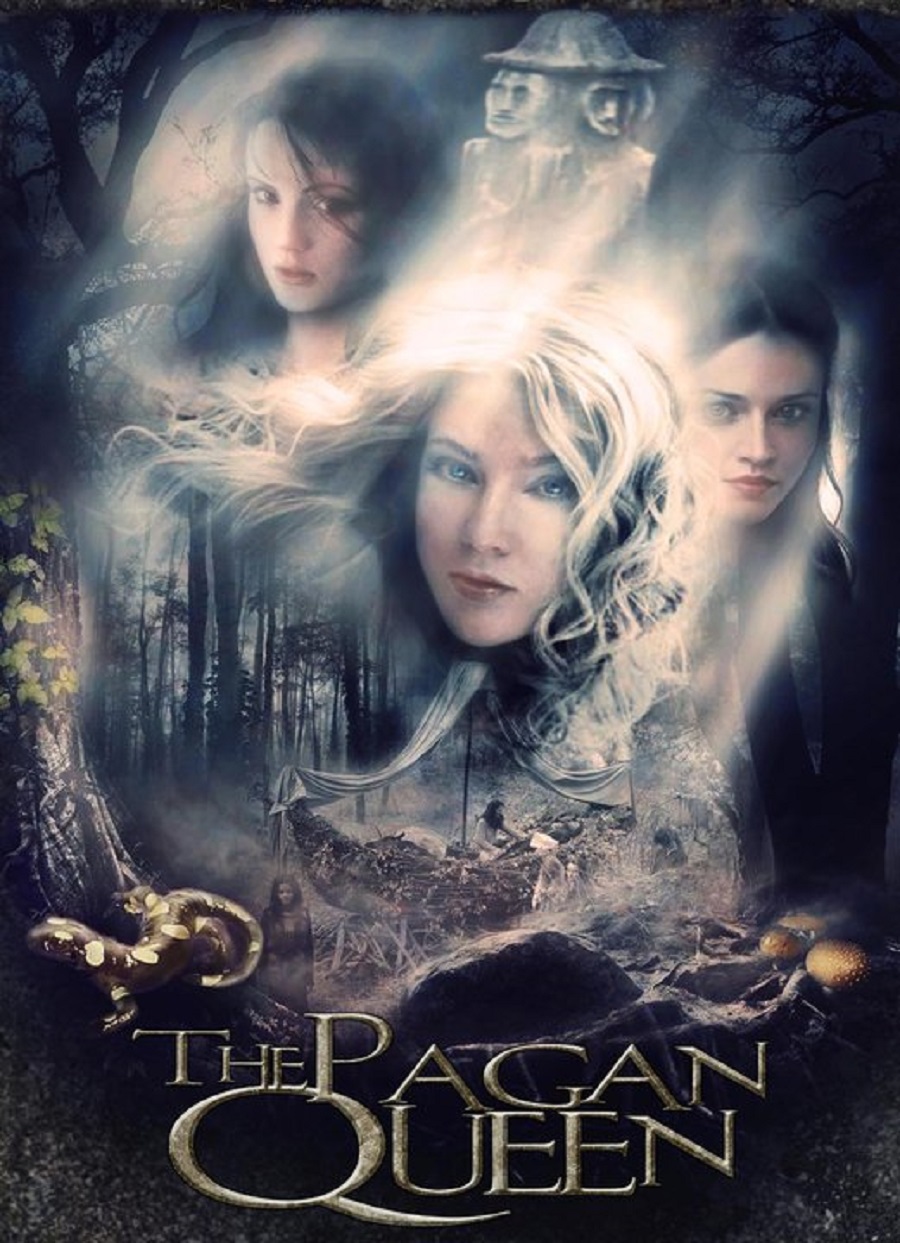
In any case, we enjoyed it and we recommend it.
You can purchase your copy on Amazon, on eBay.
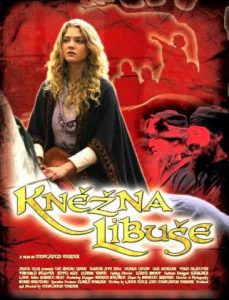 Genre: Fantasy, Romance, Historical Drama.
Genre: Fantasy, Romance, Historical Drama.
Directed By: Constantin Werner.
Screenplay By: Lance Daly, Constantin Werner.
Studio: Vanguard Cinema.
Location: It was entirely shot in the Czech Republic.
Ratings: Not rated, contains sexual elements and violence.
Awards: Estepona Fantastic Film Festival, Silver Unicorn for Best Original Film Music.
Music: The orchestral score for Pagan Queen was written by German composer Benedikt Brydern and recorded in Prague with a full symphonic orchestra. The main theme of the film was quoted from Antonín Leopold Dvořák, Romance in F minor, Op. 11.
If you have not already subscribed to get TresBohemes.com delivered to your inbox, please use the form below now so you never miss another post.
Remember, we rely solely on your donations to keep the project going.
Become a friend and get our lovely Czech postcard pack.




